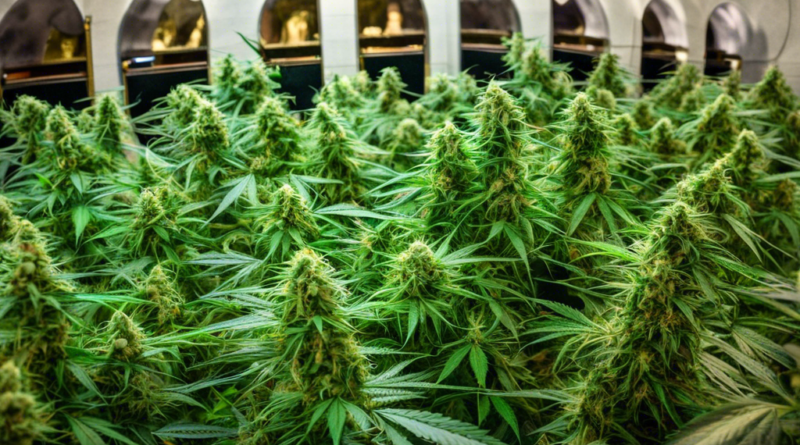New Hampshire Veto Highlights Divides in Cannabis Cultivation Regulation
The recent override failure of a New Hampshire veto on greenhouse cultivation for medical cannabis highlights ongoing tensions and developments in the cannabis industry. As legislative bodies continue to deliberate on cannabis-related laws, regulatory and operational considerations remain at the forefront.
Understanding the Current Legal Framework
New Hampshire has stringent laws concerning the growth of medical cannabis, mandating that cultivation occur in secure, entirely indoor facilities. This regulation aims to impose strict controls over the production environment, ensuring safety and compliance. The vetoed bill, HB 1581, aimed to expand cultivation options to include semi-outdoor structures like greenhouses, but this met resistance from the state’s governor, citing inadequate detail regarding regulation and security concerns.
Advocates for greenhouse cultivation argue that such measures would not compromise the regulatory structure. They emphasize that greenhouse operations would adhere to existing security norms, which include comprehensive approval processes, ensuring community and municipal safety. However, the refusal to override the veto illustrates the divide between the legislative support in the House, significantly in favor, and the Senate, unable to align their votes, reflecting differing priorities regarding cannabis regulation in the state.
Potential Economic and Environmental Impacts
The bill’s supporters pointed to significant economic and environmental advantages of greenhouse cultivation. Proponents contend that utilizing greenhouses would lower operational costs for cannabis growers by reducing the reliance on artificial lighting and climate control. Furthermore, greenhouses could potentially lessen the overall environmental footprint of cannabis cultivation, aligning with broader environmental sustainability goals.
The economic implications extend to consumer pricing and competitive market dynamics. Allowing growers to cut costs could translate into lower prices for patients accessing medical cannabis, making the therapy more accessible to those in need. Despite these advantages, the governor’s concerns about safety and security have maintained the status quo, keeping cultivation exclusively indoors for now.
Regulatory Developments Beyond New Hampshire
While New Hampshire grapples with internal legislation, developments in neighboring states and at the federal level continue to unfold. In Massachusetts, recent regulatory actions saw cannabis companies fined for failing to adhere to pesticide use and record-keeping regulations. These actions underscore the importance of maintaining rigorous compliance in an industry under constant scrutiny.
Iowa’s recent regulation on hemp-derived CBD products, with imposed THC caps, further highlights the complexity and variance in cannabis-related law across states. This law adjusts the boundaries within which hemp-derived products can operate, impacting producers and consumers alike.
On a broader scale, discussions and aspirations for federal legalization and rescheduling continue to be a topic of interest. Such moves could provide profound benefits for the cannabis sector, allowing business deductions, reducing tax burdens, and easing operating conditions. As state and federal regulations evolve, cannabis businesses remain adaptable, navigating the complex landscape in pursuit of growth and sustainability.

